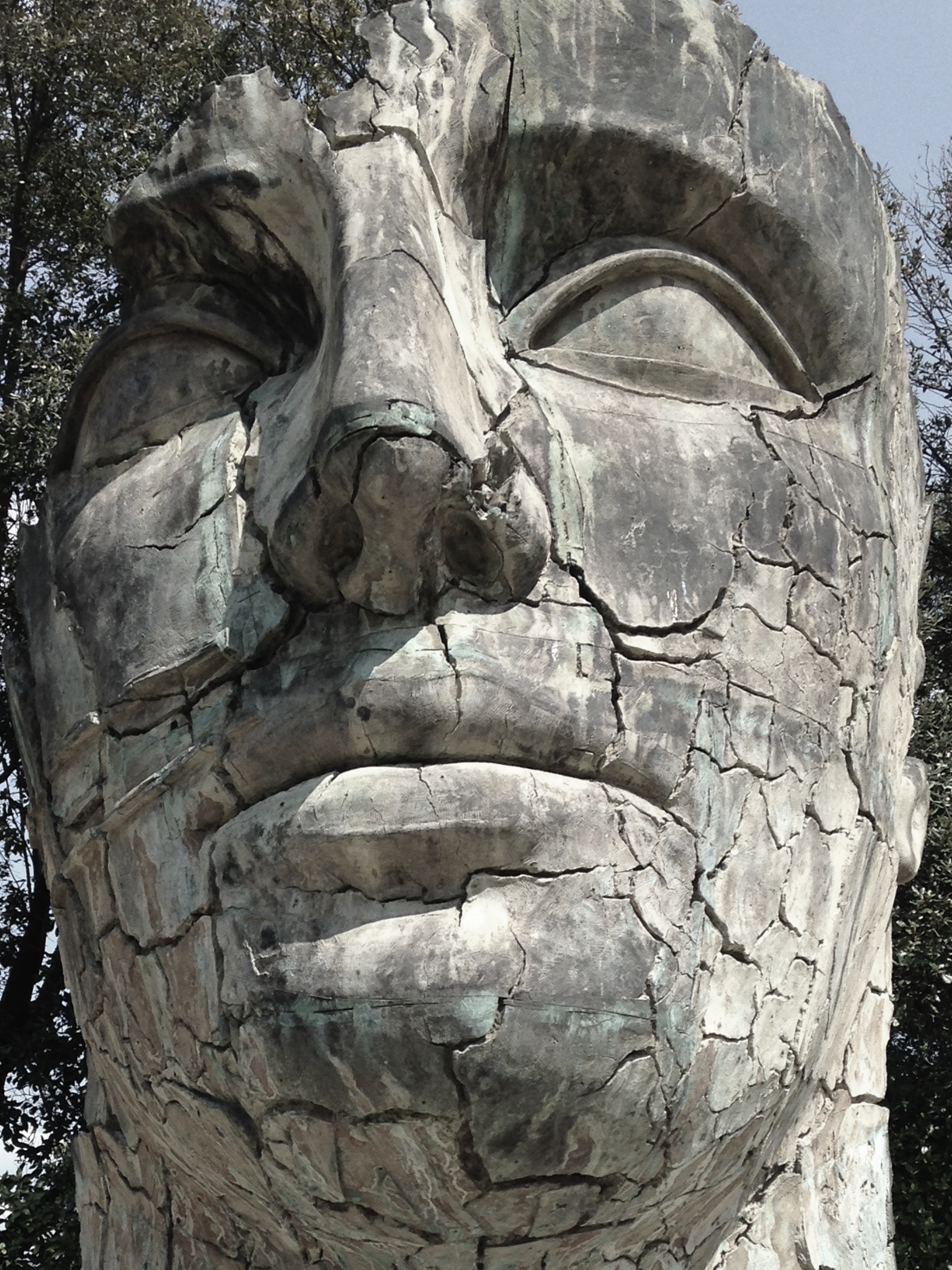"James Thomas Stevens" / "James Baldwin" by Eric Dickey
James Thomas Stevens
echolocation, leads you back / to me
I woke up as you this morning. I put my face — your face — close to the mirror
— breath on glass — and looked deep into my eyes. Your eyes looked back at me.
You were Medusa, swearing at your reflection. The paradox of her turning
to stone while looking in the mirror is false. It never happened. You had mirrors
hanging throughout your house and never once turned away. Your blind lover hovered over
the one you kept on your coffee table. She didn’t turn to stone either.
If you pull a comb through your snake hair, the comb will snap its plastic teeth
in the tangles. A brush does no better and rips out clumps of snakes;
they slither to death on the floor, slapping themselves against the tile.
I keep one strand of your snake hair tucked in a curl behind my ear
where it whispers in your voice and tells me what to do long after you are gone,
long after I’ve left the cave and stopped waiting for your echo to return.
James Baldwin
Eric knew how it was done, he had seen the horses and the blind and dreadful bulls.
— from The Man Child
How could you do that to that boy? He looked up to you. He trusted you
to show him the dark forest behind our house. You abandoned him,
left him half buried in the red sandstone in the rain. You lied when asked.
You lied to his parents who stood in our doorway under the lucky horseshoe.
You lied to Mom and said you never saw him. Then you lied and said you saw him earlier.
Then lied again saying you were playing in the woods, and thought he’d find his way back.
Mom slapped your face for lying, right in front of his mother. Why was I slapped, too?
She said I knew, but I didn’t. Their looks of worry turned to anger,
and then to relief when the boy came crying up the street. Dad yelled
at the dog circling and barking, and lit up a Winston. Did you go there to smoke?
What else did you show the boy? I wonder if he smokes now, or hits his kids,
or if he can sit in a quiet forest marveling as campfire embers float to the stars.
“James Thomas Stevens” and “James Baldwin” are excerpts from the upcoming anthology, The Book of James. It is designed by author Eric Dickey as a “book-length elegy” to his brother James, who unexpectedly passed away in his sleep. Dickey writes to famous people and locales named James, as if he were writing to his brother himself, combining aspects of his brother and the famous subject.
In memory of James David Dickey (March 3, 1966 – October 22, 2008)
Eric Dickey
Eric Wayne Dickey holds an MFA in Creative Writing and an Honor’s BA in English and Philosophy from Oregon State University. He is a John Anson Kittredge Fund for Individual Artists grant recipient administered by Harvard University, and a Vermont Studio Center Fellow. He has published two ebooks of original poetry: The Hardy Boy Poems (Beard of Bees, 2013) and Forgive Me, Tiny Robots (Argotist Online, 2013), and a children’s book, Alex the Ant Goes to the Beach (Craigmore Creations, 2014). His original poetry has been published in PageBoy, Cloudbank, Lummox, and International Poetry Review, among other journals. Online, you can find his work at Blazevox, Talking Writing, On Barcelona, and at Contrary Magazine, which nominated his poem “James Dean” for a 2021 Pushcart Prize and a 2021 Best of the Net. Erica Goss interviewed him about The Book of James for her newsletter, Sticks and Stones, (January 2021). He received an honorable mention in the 2021 Angela Consolo Mankiewicz Poetry Prize contest by Lummox Press for three poems from The Book of James. His translations of Hans Arnfrid Astel’s poetry have appeared in To Topos: Poetry International, Rhino, and International Poetry Review, and online at Truck. In 2022, Action Books featured an excerpt of his translation of Arnfrid Astel’s Iamb(s) and Butterfly(lies) or Amour & Psyche: A Butterfly Study on its blog, Action Fokus. From 2002 to 2019, he co-edited Pacifica: Poetry International, an international poetry translation journal for which he received fellowships from Literary Arts of Oregon in 2005, 2008, and 2018.
Headshot: Heather March
Photo Credit: Staff


